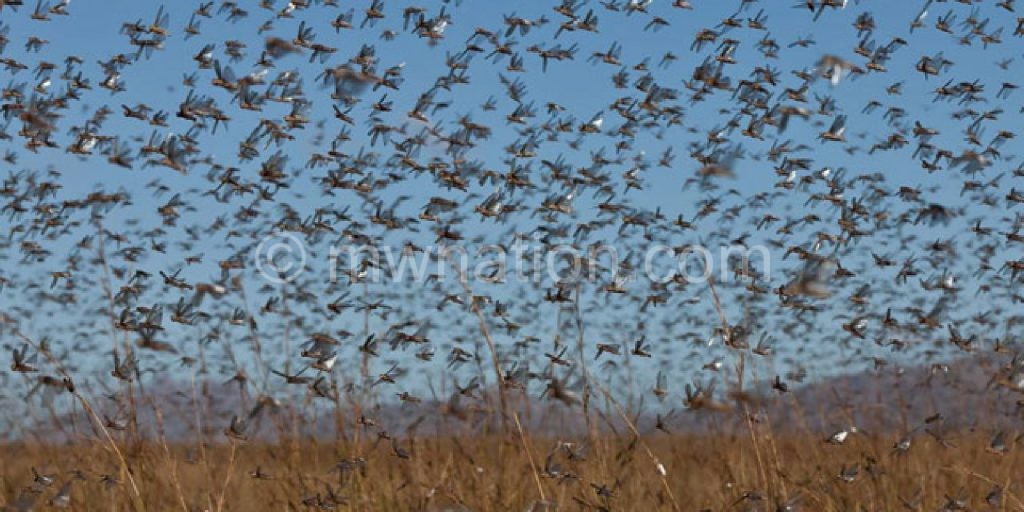Illovo kills locusts, warns against consumption
Illovo Sugar (Malawi) Limited yesterday declared victory over swarms of locusts that affected its 405 hectares of sugar cane at its Nchalo Estate in Chikwawa.
In a telephone interview yesterday, Illovo spokesperson Irene Phalula said over 24 hours after they sprayed Fipronil, a chemical used to kill locusts, the pests had died by the morning.

Illovo has since partnered Shire Valley Agriculture Development Division (ADD) to hold sensitisation campaigns in communities covered by the ADD to stop people from selling, buying and eating the locusts killed by the chemicals.
Shire Valley ADD principal crop protection officer Ringstone Taibu and Phalula said from yesterday, they are going around communities with a megaphone spreading the news.
“We have also collaborated with the Malawi Police Service [MPS] to search and confiscate locusts at the roadblocks,” said Phalula.
Illovo sugarcane fields were attacked on Monday afternoon and the locusts damaged leaves of matured sugarcanes.
However, the estate was able to stop the swarm, which was reported to be two kilometres long and with a capacity to cover a distance of 400 to 500 kilometres in a day, with aerial spraying of cypermethein, a chemical that scares the pest, before weakening it further with Fipronil.
“We can proudly say that we have defeated the locusts. Fipronil kills locusts after 48 hours and after a day, we saw the locusts falling in the fields. We have killed all of them,” said Phalula.
She added that the swarm did not hit any of its maize fields planted under winter cropping.
Government subcontracted Illovo to grow maize to supplement its maize imports for averting the looming hunger that has hit an estimated 73 percent of the country’s 16 million population—roughly seven in every 10 people, according to recent national average figures.
There are 115 hectares of maize at Illovo now and the locust invasion created fear that if attacked, government’s plans to lessen the hunger might be compromised.
Taibu said both cypermethein and Fipronil chemicals are hazardous to human health and, therefore, risky for people to eat locusts killed by the chemicals.
In an email response yesterday, Principal Secretary in the Ministry of Agriculture, Irrigation and Water Development Erica Maganga said they have deployed technical staff from Lilongwe, who are working with Shire Valley ADD, to do spot spraying using motorised sprayers already at the ADD.
“The ministry has also alerted farmers to be vigilant and observe the swarms and report to agriculture staff. We know farmers are living in fear, but they should not panic because the ministry has contacted the International Red Locust Control Organisation for Central and Southern Africa [Irlcocsa] based in Zambia to come to Malawi to conduct surveillance and control operation. They are coming to Malawi shortly and the necessary logistics are almost finalised,” she said.
Maganga said Malawi can only do spot spraying because the habit of the locust can only be accessed through appropriate aircraft which Irlcocsa has.
However, Taibu said although they have dealt with the locust in Nchalo, the key solution would be to deal with the source. Taibu said as the locust originated from Mozambique as such there is need for the intervention of Irlcocsa.
Irlcocsa covers Malawi, Mozambique, Zimbabwe, Zambia, Tanzania and Uganda.
The first swarm of locust was reported at Nyamula Irrigation Scheme in Nsanje on July 22 where it damaged both young and matured maize leaves before spreading to Ntolongo Irrigation Scheme, Nyachilenda, Dzunde and Mpatsa Extension Planning Areas (EPAs).
This week, it crossed to Nchalo in Chikwawa.





